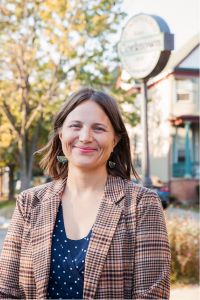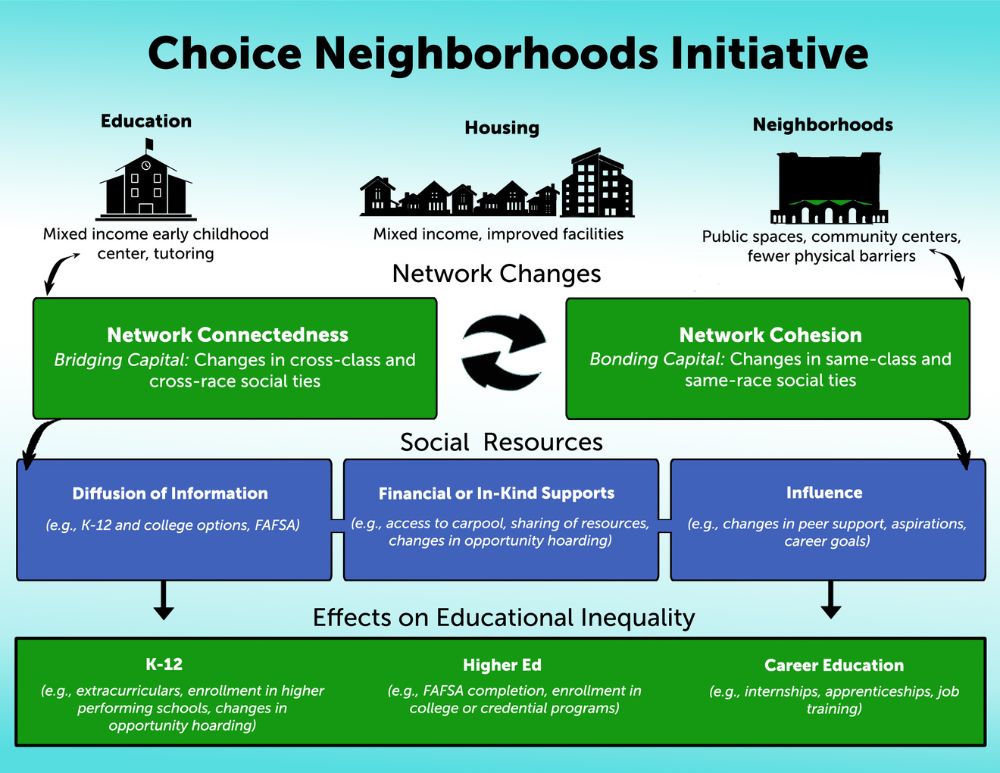Wayne State University College of Education receives $600,000 from the William T. Grant Foundation to study impact of mixed-income neighborhood initiatives on Black youth
Detroit — The Wayne State University College of Education was awarded $600,000 from the William T. Grant Foundation to study the impact of mixed-income neighborhood initiatives on educational inequality for Black low-income youth. “How do Mixed-Income Neighborhood Initiatives Reduce Educational Inequality for Low-Income Black Youth?” will be conducted through the Detroit Partnership for Education Equity & Research (Detroit PEER), a college research center that conducts collaborative, community-centered and equity-focused studies to improve the Detroit educational ecosystem.
Historically, unfair housing practices in the United States have perpetuated a gap in educational opportunities between Black and white students. Government housing programs have tried to resolve this problem by helping reduce poverty and racial segregation in certain areas, but initiatives have usually focused only on housing and not explored other factors that contribute to the issue. The U.S. Department of Housing and Urban Development (HUD) created the Choice Neighborhoods Initiative (CNI) in 2010 to make neighborhoods better by bringing different groups together to improve access to resources and strengthen the sense of community.

“To truly address educational inequality, it is crucial to examine the combination of underlying systemic issues that contribute to the problem,” said Sarah Winchell Lenhoff, principal investigator and the Leonard Kaplan Endowed Professor and an associate professor of educational leadership and policy studies in the college. “We are excited because this award will allow us to contribute to the growing body of research on how neighborhoods shape young people’s social networks and educational opportunities. We hope our findings will inform policymakers and community leaders of effective strategies for promoting equity in Detroit and beyond.”
The three-year project builds upon Lenhoff’s work as the director of Detroit PEER and aligns with the foundation’s efforts to reduce inequality in youth outcomes. The research team — which includes co-principal investigators Huriya Jabbar, associate professor of education policy in the University of Southern California Rossier School of Education; DeMarcus Jenkins, assistant professor in the University of Pennsylvania School of Social Policy & Practice; and Kara S. Finnigan, professor of educational policy in the University of Michigan Marsal Family School of Education — will examine how HUD’s CNI in Detroit’s Corktown neighborhood can improve social cohesion, social networks and educational opportunities for Black families.
“It is so important to understand how mixed-income housing and neighborhoods influence youth outcomes — what actually happens when we bring together families from different economic and racial/ethnic backgrounds together in a residential building complex or in a community center?” said Jabbar. “Our hope is that the research will reveal the conditions that foster authentic relationships across differences and produce valuable insights into how those connections shape educational opportunities and outcomes for youth.”
“Structural inequality continues to limit Black youth’s access to educational opportunities,” said Jenkins. “Federal initiatives that aim to reduce inequality and improve the material circumstances of Black communities show great promise for a more equitable and just society.”
“Through this multiple methods, cross-sector, longitudinal study that includes critical network analysis, we seek to address some long-standing questions around integration,” said Finnigan. “Our study will not only contribute to the research in this area but also to policy and practice by identifying the mechanisms through which social connections of residents in Corktown are transformed or disrupted, as well as the positive and negative effect of this intervention on the educational and social opportunities of Black low-income youth and their families."
The Corktown CNI strategy is focused on three areas: education, housing and community. This three-pronged approach includes building a new mixed-income preschool; funding wraparound services, literacy tutoring, and job training; developing more than 800 new mixed-income housing units; and investing in street calming and green space infrastructure with free wi-fi, community events and redevelopment of a former public-school site into a community empowerment center.
 Investigators will survey about 350 residents, conduct in-depth interviews with 40 families and members of their social networks and analyze Michigan’s longitudinal educational administrative data, concentrating on the 500 children in the neighborhood who attend public school. The goal is to explore how changes in social networks and access to resources can influence educational outcomes for Black youth.
Investigators will survey about 350 residents, conduct in-depth interviews with 40 families and members of their social networks and analyze Michigan’s longitudinal educational administrative data, concentrating on the 500 children in the neighborhood who attend public school. The goal is to explore how changes in social networks and access to resources can influence educational outcomes for Black youth.
"The Wayne State University College of Education is committed to being a force for positive change in our community,” said Dean Denise Taliaferro Baszile. “Through our research, partnerships and community initiatives, we strive to empower individuals and promote social mobility. The community engaged work Sarah and our other faculty members do allows us to participate in critical conversations about educational equity and explore innovative solutions with the community."
For more information about this grant award, visit wtgrantfoundation.org/six-new-research-grants-to-build-theory-and-evidence-in-our-focus-areas-summer-2024.
About the Wayne State University College of Education
Anchored by its commitment to social justice, equity and inclusive excellence, the College of Education offers degree programs in more than 25 areas, including early and elementary education, counseling, educational leadership and policy studies, educational psychology, educational research and evaluation, exercise and sport science, learning design and technology, special education and sports administration. To learn more, visit education.wayne.edu.
About Wayne State University
Wayne State University is one of the nation’s pre-eminent public research universities in an urban setting. Through its multidisciplinary approach to research and education, and its ongoing collaboration with government, industry and other institutions, the university seeks to enhance economic growth and improve the quality of life in the city of Detroit, state of Michigan and throughout the world. For more information about research at Wayne State University, visit research.wayne.edu.
Wayne State University’s research efforts are dedicated to a prosperity agenda that betters the lives of our students, supports our faculty in pushing the boundaries of knowledge and innovation further, and strengthens the bonds that interconnect Wayne State and our community. To learn more about Wayne State University’s prosperity agenda, visit president.wayne.edu/prosperity-agenda.